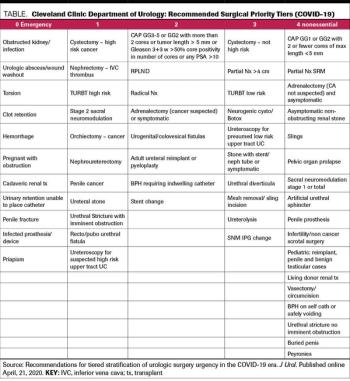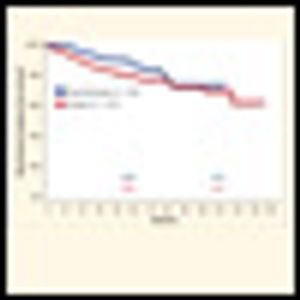
The chairman of the Glickman Urological & Kidney Institute at the Cleveland Clinic provides commentary and an adjacent perspective to the Duke Cancer Institute report.

Your AI-Trained Oncology Knowledge Connection!


The chairman of the Glickman Urological & Kidney Institute at the Cleveland Clinic provides commentary and an adjacent perspective to the Duke Cancer Institute report.

For those undergoing screening for the presence of previously undiagnosed prostate cancer, the major challenge for new tests is to avoid the overdetection of indolent cancers that limits the clinical utility of the prostate-specific antigen (PSA) test.

The comparison of brachytherapy and surgery may be done on several levels. This review focuses the comparison on toxicity, the “soft” endpoints of biochemical relapse-free survival and clinical relapse-free survival, and the “hard” endpoint of prostate cancer–specific mortality.

Despite the impact of prostate-specific antigen (PSA) testing on the detection and management of prostate cancer, controversy about its usefulness as a marker of disease activity continues. This review, based on a

Despite the impact of prostate-specific antigen (PSA) testing on the detection and management of prostate cancer, controversy about its usefulness as a marker of disease activity continues. This review, based on a

Prostate cancer has been the most common visceral malignancy in American men for the last decade. The estimated lifetime risk of the disease in the United States is 16.6% for white men and 18.1% for African-American men, with a lifetime risk of death of 3.5% and 4.3%, respectively.[1] Recently, the National Cancer Institute (NCI) reported that the overall cancer mortality rate decreased between 1990 and 1997, including a reduction of approximately 6% in prostate cancer mortality.[1] Furthermore, Tarone et al reported that the mortality rate for prostate cancer among white men in the United States declined to a level lower than that reported prior to the introduction of prostate-specific antigen (PSA)-based screening in 1987.[2]

Conventional histopathologic evaluation of bladder cancer, encompassing tumor grade and stage, is inadequate to accurately predict the behavior of most bladder tumors. Intense research efforts are under way to identify and

Published: November 1st 2001 | Updated:

Published: October 13th 2009 | Updated:

Published: August 1st 2002 | Updated:

Published: September 1st 2002 | Updated:

Published: February 15th 2014 | Updated:

Published: March 1st 2002 | Updated: